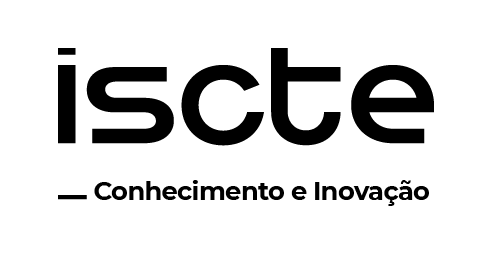- Notícias
- Eventos
- Iniciativas Recorrentes
- Biografias e Trajetórias
- Cidades & Impérios: dinâmicas locais, fluxos globais
- Diversidade Cultural em Famílias Contemporâneas
- Encontros de Estudos sobre a China
- Encontros Experiências Migratórias
- Estudos Sociais sobre a Ciência e a Circulação do Conhecimento
- Fórum das Políticas Públicas
- Fórum Pesquisas CIES
- Género, Sexualidade e outros marcadores sociais de diferença
- Leituras ETNO.URB
- Movimentos Sociais e Ação Política
- Novas Perspectivas em História Moderna
- Revisitar o Século XIX
- Workshops de Investigação
- Workshops de Inovação Metodológica
- Calls
O próximo Encontro de Experiências Migratórias com o tema "Rethinking Safe Education: Addressing Socio-Educational Vulnerability Among Migrant-background Students", realiza-se no dia 27 de outubro 2025, exclusivamente online.
ORADORA
Giulia Di Lisio
PhD Candidate, Universidad Pontificia Comillas
COMENTÁRIO
Adriana Albuquerque
Observatório das Desigualdades, CIES-Iscte
LINK TEAMS
https://bit.ly/EEM_27OUT

ABSTRACT
The session presents the key findings and methodological framework of my PhD thesis, developed within the scope of the European research project LET’S CARE. The project explores systemic and relational factors that contribute to academic disengagement, underachievement, and early school leaving, with a focus on vulnerable populations. Within this context, my research concentrates specifically on migrant-background students, understood in the broadest sense. The first phase of the research begins with a systematic literature review identifying socio-educational vulnerability factors that hinder the academic achievement of students with migrant backgrounds. These factors are then critically compared with the LET’S CARE model of Safe Education (SET-M)—a theoretical and empirical framework designed to foster inclusive and supportive educational environments. The session will examine both the structure and design of the SET-M and its applicability to the specific realities of migrant-background students, highlighting potential conceptual and methodological gaps. The next phase of the thesis will involve an empirical evaluation of the model's relevance in measuring the socio-educational vulnerability of migrant-background students, particularly in terms of academic underachievement and risk of early school leaving. The aim is to contribute to the literature on educational equity by refining tools to better understand and support students with migrant backgrounds within European educational systems.
NOTAS BIOGRÁFICAS
Giulia Di Lisio is a PhD candidate at the Institute for Migration Studies, Comillas Pontifical University (Madrid, Spain), working within the Horizon Europe project LET’S CARE. Her doctoral research explores socio-educational vulnerability among students with migrant backgrounds, focusing on relational factors that affect academic performance and early school leaving. She holds a Bachelor’s degree in Linguistics and Modern Literatures (Tor Vergata University, Rome), a Master’s in International Cooperation and Development (La Sapienza University, Rome), and a Master’s in Research Methodology in Social Sciences (Complutense University of Madrid). Giulia has participated in international projects addressing public health, labor rights, and participatory science, collaborating with organizations such as CSIC, Microfinance Opportunities, and the ACTION project (H2020). Her expertise spans mixed-methods research, impact assessment, and community-engaged approaches.
Adriana Albuquerque is a sociologist and a researcher at the Inequality Observatory (CIES-Iscte). Her work focuses on social and ethnic inequalities in education, with an emphasis on school-effects from a contextual, mixed-methods approach.



